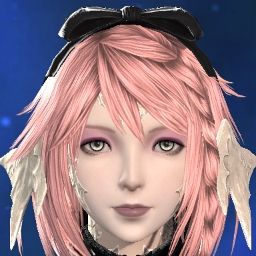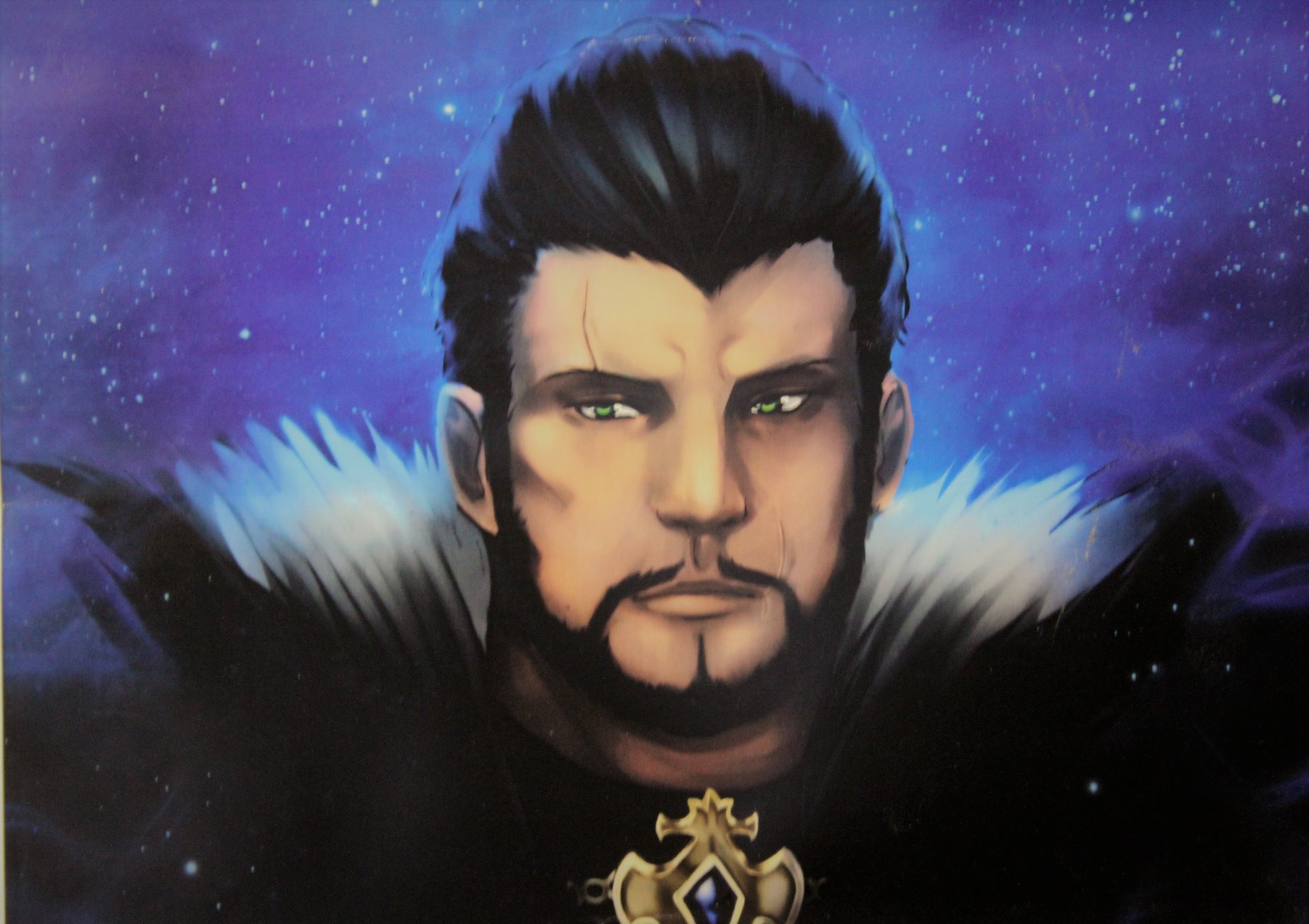Thread: Tales from the Dawn
-
08-27-2022 02:56 PM #41(24)
-
08-27-2022 03:45 PM #42https://www.youtube.com/watch?v=IXqiUrjpBbI"What we anticipate and what comes to pass need not be the same," she had once said. "'Tis best we work towards the greatest good without foreknowledge which might cloud our judgment."
An interesting conclusion. To begin, I'd sure like to know what irrefutable, indisputable argument of Truth Venat had written in that thesis. Considering that in order to argue the universe's natural laws made life inevitable, she would need to know about things like the existence and effects of Dynamis, the nature of how stars are formed, the "greater flow" of the universal Lifestream, the inner workings of their own star's Lifestream and how souls are created, and much more besides. She would also need to explain the seeming absence of other lifeforms in the universe, as up to Elpis the Ancients had only theorized the existence of alien life. So that must be quite the paper.
But more to the point, what you and the Watcher seem to be getting at is the fact that everything in existence is made up of the same building blocks. So somehow, this means that everything is equivalent, and the Ancients were wrong for (if the translation is correct, which maybe it isn't?) trying to exchange future souls for the souls of their fellows. The problem is, this is a two-way street. If the Ancients aren't more important than anything else, then nothing else is more important than the Ancients either. If so, then what is the problem for sacrificing potential future souls for the souls that already existed trapped in Zodiark? If they're supposed to be equivalent, then why is greater value placed on the future souls than those in the present?
Here's a wildly controversial and white-hot take - If you believe that Venat's argument is right and that the potentiality of future life supersedes the survival of existing life, you must also believe that preventing abortion, even in the case where the mother's life would be forfeit if it wasn't done, is morally correct. Now maybe that's wrong or maybe that's right, but either way that's an argument and line of thinking that practically nobody, regardless of their stance, is willing to seriously consider. So at the very least I'd like people to actually think more deeply about the values that they're talking about.(22)
-
08-27-2022 04:44 PM #43Player
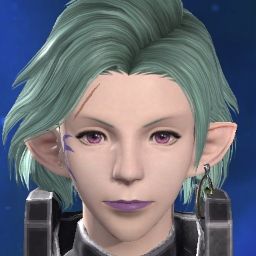
- Join Date
- Sep 2021
- Location
- Solution Eight (it's not as good)
- Posts
- 3,030
- Character
- Ein Dose
- World
- Mateus
- Main Class
- Alchemist Lv 100
So, here's the thing about this: there is, in this game, literally no such thing as an impartial arbiter on this subject. Or, honestly, on anything this game has ever brought up. The writers are abundantly aware of this, and honestly, it's probably why Emet-Selch was given so much screentime in Shadowbringers; there's not a whole lot of other people who were going to speak on Zodiark's behalf that aren't... you know, completely insane. So he's given a lot more room to say his case, and a lot more credibility in what he's saying, than I honestly still think the Scions would've given him if written more consistently; because otherwise, Zodiark's side is never said.
However, remember that with the exception of one single zone, the entire game is populated by, broadly, people that benefited from Hydaelyn's choices and are, in various forms, proof positive of her beliefs that, while life may have suffering, life on the whole is pretty worthwhile and that lives should not be considered lesser by arbitrary distinction. Remember, as we learned, that the playable races are indistinguishable from the lesser creatures; we are living in a world populated by the people Hydaelyn performed the Sundering for.
It's not that the story wants you to sympathize with Venat. It's that the entire planet around you for most of the game has benefited from her, and so they are naturally pro-Hydaelyn in much the same way that, say, Jews are broadly pro-Yahweh; sure, he's not perfect, but on the whole they're pretty glad he went to bat for 'em.
And I wouldn't say the angle I gather from this is 'militantly vegan'; I certainly know vegetarians and vegans who feel that way, but Venat appeared to put forward something more on the base sceintific angle: 'we're not special, we're made of the same meats, aether and feelings as everyone else'. That doesn't require a complete 100% perfect knowledge of all scientific concepts at play, that basically just means she's made scientific connections that we, as modern humans, can also recognize as true. You know that there's not some fundamental difference in matter and composition between you and a dog; I assume that doesn't change a whole lot of your outlook, but 'we're not special' is a big thing for plenty of others, and Venat is someone who took that seriously and fairly strongly.
I'm not turbo-staunchly pro-Hydaelyn, but I do broadly think she made the right choices even if it wasn't an easy or unarguable one. I think some people want the game to come out and say that one of the sides involved was objectively right, just so it stops being complicated, and those people are always going to be disappointed in any further content about it, because the game just isn't going to do that. The closest we'll get is that we're in a world made by Hydaelyn's choice, and whether or not that choice was good or bad at the time, everyone around us generally benefitted from it.(12)
-
08-27-2022 04:58 PM #44
-
08-27-2022 08:24 PM #45
I'm not really understanding the angle you're going for in implying that because the Sundered 'benefitted' from her choices, it would be weird or out of turn to take issue with what she's done. People are more than capable of recognizing that awful deeds from the past served to put them where they are now. Acknowledging that this person is responsible for creating the 'you' that exists now, arguably gives more of a reason to take issue with her, as her methods resulted in an unbelievably lower average quality of life for everything. Handwaving her actions by comparing her to a religious god who just 'giveth and taketh away' does nothing because WE, both the playerbase and central characters, know that she was not a god, she was just another person. That is a fact that is used to great effect when we're to feel bad for her, of course, and conveniently ignored when her decisions are questioned. We are absolutely meant to sympathize with Venat, they're just not doing a good job.
(19)
-
08-27-2022 08:43 PM
Player
-
08-27-2022 09:23 PM #46Player

- Join Date
- Sep 2021
- Location
- Solution Eight (it's not as good)
- Posts
- 3,030
- Character
- Ein Dose
- World
- Mateus
- Main Class
- Alchemist Lv 100
I'm comparing her to a religious god because no other scale is particularly functional as a comparison. I actually went through some others; comparing her to the sun doesn't work because the sun doesn't have agency, and comparing her to a politician who shaped a nation doesn't work because people in-story definitely don't look at her the same way people look at, say, Lincoln. Technically speaking the closest example would've been to go for a Greek god like Zeus, because those myths were very formed by the notion of gods being temperamental and human, but we don't really have reliable and close-at-hand knowledge of how regular-ass ancient Greeks considered them. I finally landed on Judaism specifically because a level of adversity towards their god is actually a fairly commonplace part of their belief system; rather than how Christianity broadly does go 'god giveth and god taketh', Judaism actually does believe that their god is a complex figure that, while he may broadly be on their side, doesn't mean he's perfect or that they shouldn't take umbrage with him sometimes.
The thing about saying 'her methods resulted in a lower average quality of life' isn't broadly true, though, because the main people who were put out of place by it were the Ancients. You might go and say 'but those are people so all people were hurt', but we have a funny piece of evidence there: not every spoken person in the sundered world would have been an Ancient, because that's what the Echo is a mark of. Someone like the WoL might have very specifically lived better, but most people don't have that despite having the chance to awaken it; none of the 'A-tier Scions' would have been, Nidhana wouldn't have been, Raubahn wouldn't have been, Aymeric wouldn't have been... I don't know who your favorite characters are, but unless you very specifically only like Emet, Hyth, Ysayle, Krile and Arenvald, very few of your favorite characters would have actually had that guarantee that life would've been better without her. In fact, the argument is pretty clear that most of those lives wouldn't have existed at all without her, especially given the specter of Zodiark's sacrifices.(3)
-
08-27-2022 09:58 PM #47
Okay, you've made your case for there being lacking human comparisons, but forgive me for saying I'm failing to even see the purpose of this? Does marking her with some human title do anything to alleviate or put in better perspective what she's done? She is a person, as any other in their society, who grew in physical power due to the nature of their fictional world, of course there isn't a human basis for comparison, that isn't really a thing in our world on an individual level. That being the case, her rise to power certainly does not deify her to the extent that she is exempt from consequence, and even if she were a god in full, Final Fantasy is no stranger to, as you say with Greek gods, having deities with no better judgement than humanity. These classifications accomplish decidedly little in the way of making a framework to judge her on.
I also believe you're misunderstanding what people having the Echo means in the Sundered world. It is not just some inborne trait that select people have, that marks them as an Ancient in their previous life, and I don't believe that was ever used as an indicator of such. Do you not recall when Elidibus just casually gave the entire single-shard Crystarium the Echo by showing them a glimpse of a Starshower, prompting him to only then explain that this was a power within them all along? The people who have the Echo in the Source, have it as a result of Hydaelyn doing the exact same thing that he did, that is why they are so often called 'Her chosen,' and the like. The Ancient lives who make up the now-Sundered count for far FAR more than you posit. Just because Hydaelyn or the Ascians haven't awakened their old power, it doesn't mean they don't have the potential.
Hydaelyn also didn't just Sunder the Ancients, she sundered everything. The animals, the 'lesser lives' in whatever vague form that takes; everything. In addition, she, rather painfully from the looks of it, reduced everything to bumbling masses that couldn't speak, sent back to the Stone Age. This is all to say nothing of the fact that the actual societies that formed as a result of this act are more susceptible to the elements and disease than ever before, alongside that, from what we've seen of the Ancient World and Emet's account (which is the crux of his argument,) they are also prone to much larger and more frequent bouts of violence and death for baser reasons. To call this a lower average quality of life is not only more than fair, it should be obvious.(13)Last edited by SpectrePhantasia; 08-27-2022 at 10:03 PM.
-
08-27-2022 10:00 PM #48
Alisaie: "The starshower didn't awaken me to Hydaelyn's voice. But that vision of the Final Days, of Amaurot burning... It filled me with sadness to the very pit of my being. Things I once knew, people I once loved, promises I once made... It felt as though long-forgotten memories were dancing at the edges of my mind. But when I try to focus on them, they simply fade away. An effect of having a fractured soul, I shouldn't doubt."
Many people who don't have the Echo are still sundered Ancients, this was made clear in the ShB patches after Elidibus started conjuring star showers.(17)
-
08-27-2022 10:15 PM #49Player
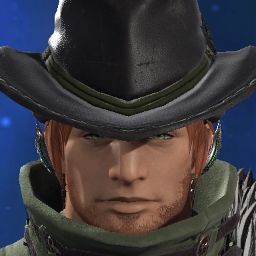
- Join Date
- May 2014
- Location
- The Interdimensional Rift
- Posts
- 3,600
- Character
- Vicious Zvahl
- World
- Excalibur
- Main Class
- Machinist Lv 100
She's literally just Ozymandias from Watchmen, but please, do go on prostrating yourself before her.
The biggest change to life that Hydaelyn wrought was splitting the Lifestream. Each shard has its own, as evidenced by her having to go retrieve Emet-selch and Minfilia (which she actually cut Minfilia out of Ryne, but ya know, whatever). This fundamentally changed life, because while the planet still imparts souls into the living, the cycle was sped up tremendously and in addition to that, each Shard and The Source have less aether to forge into souls.
So it's true yeah, obvious even without that observation that no modern characters would exist without that act. But it's also true that without Zodiark, everyone would have drowned in Dynamis.
The rub lies in that other lives would have come to exist. The potential for all non-3rd sacrificial beings to bear offspring, to thrive, to live, know, and die was cut off. You're essentially trying to claim that every innocent in the age of the Ancients has no value, as well as every potential Ancient. The appeal to emotion that we do not know them does not work when set against morality.
It's important to note that nothing from the Sundering directly improved mankind's ability to live. Its only benefit was rendering the possibility that mankind would be able to interact with Dynamis. With complete foreknowledge that it wouldn't kill them and they would grow into the Sundered, it was done.
Seeing no other solid rationale, and knowing that the 3rd Sacrifice schtick was a lie for her followers, all we can say for sure is that Venat chose the WoL's people over her own. It means she made no meaningful connections, saw no one as equals, and really possessed zero love for mankind. And that's zero love in all senses of the word love.
No Eros. No Philia. No Storge. And absolutely no Agape.
There was no faith in her "decision." There was only prophetic fulfillment. And it derives from her selfish, conceited motivation to obey the love letter from her future self (the WoL). The letter that informs her, not only will she become a goddess to the Sundered, but she will also be able to cast down her own people's god and civilization.
It turns out she has the same personality flaw as Zenos. An all encompassing superiority complex. Although, it is expressed in a different way, they are the same.
Monsters by another name.(18)
(Signature portrait by Amaipetisu)
"I thought that my invincible power would hold the world captive, leaving me in a freedom undisturbed. Thus night and day I worked at the chain with huge fires and cruel hard strokes. When at last the work was done and the links were complete and unbreakable, I found that it held me in its grip." - Rabindranath Tagore
-
08-27-2022 10:33 PM #50Player
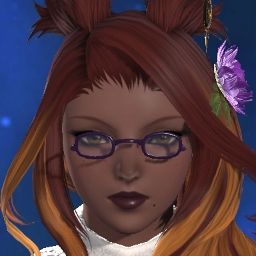
- Join Date
- Feb 2018
- Posts
- 3,320
- Character
- Sanna Rosewood
- World
- Midgardsormr
- Main Class
- White Mage Lv 100
I didn't see it as the Watcher being in love with Venat. But more of someone who enjoys the things they do. Similar to how one could not be in love with Stradivarius the man but still love his craftsmanship when it came to his Violin making. I liked the story. It doesn't give us a whole lot that we here didn't already know. Except I'd say that it seems like she wasn't going to heavily lean on what we told her as the only thing when making the decision to sunder. If the "What we anticipate and what comes to pass need not be the same," she had once said. "'Tis best we work towards the greatest good without foreknowledge which might cloud our judgment." is to be taken into account. At least that's how it came across to me.
(3)



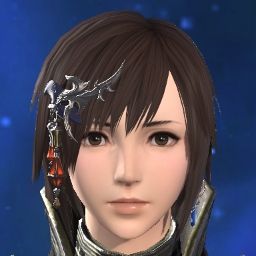
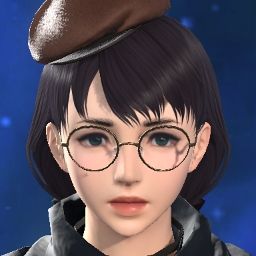

 Reply With Quote
Reply With Quote




